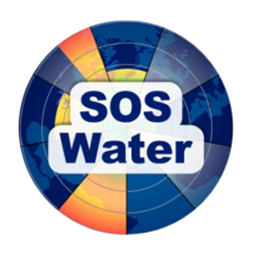Policy &
Stakeholder Engagement
Turning Science into Action
Scientific research is most valuable when it directly informs policy decisions and on-the-ground solutions. The SOS-WaterProject is committed to ensuring that our findings not only advance academic knowledge but also shape sustainable water governance strategies at the local, national, and EU levels. Through policy engagement, stakeholder collaboration, and participatory research, we work to bridge the gap between scientific insights and actionable water management solutions.
From Research to
Policy Implementation
One of the core goals of SOS-Water is to ensure that the knowledge generated by our models, case studies, and field research translates into meaningful policy changes. Our findings provide critical data on water stress, climate risks, and ecosystem resilience, which directly feed into EU water policy frameworks, such as the Water Framework Directive, the EU Green Deal, and national adaptation plans.
To facilitate this translation from research to governance, we have developed policy briefs that distill complex scientific results into concise, decision-relevant insights. These briefs serve as a key resource for policymakers, regulatory agencies, and water management authorities, helping them understand emerging risks, trade-offs, and sustainable management options. By aligning our research outputs with existing policy frameworks, we ensure that our work has a lasting impact on how water resources are governed acrossEurope.
To improve resilience, our research highlights the importance of integrated water storage solutions, adaptive reservoir management, and nature-based flood protection strategies. By combining advanced forecasting with smart infrastructure planning, we can help communities adapt to the new realities of climate-driven water variability.
Stakeholder-Driven
Co-Creation of Solutions
Effective water governance requires collaboration between scientists, policymakers, industries, and local communities. The SOS-WaterProject has adopted a co-creation approach, actively involving stakeholders from diverse sectors in the development of practical, place-based water management strategies.
Across our case study regions, we have facilitated participatory research initiatives that bring together local water users, decision-makers, environmental organizations, and scientific experts. This process ensures that scientific insights are enriched by local knowledge, leading to better-tailored, more feasible, and widely accepted water management interventions.
Some examples of successful stakeholder engagement include:
- In the Danube Basin, we have worked closely with transboundary water authorities, NGOs and industry representatives to identify governance strategies that balance agricultural, industrial, and ecological water needs.
- In the MekongDelta, we have engaged with local farmers and fisheries to assess how salinity intrusion and sea-level rise affect their livelihoods, helping to shape adaptation policies.
- In the RhineBasin, our collaboration with urban planners and engineers has explored the effectiveness of nature-based solutions, such as green roofs and floodplain restoration, to enhance urban water resilience.
- In the Júcar River Basin, ongoing consultations with agricultural stakeholders have guided the development of sustainable irrigation practices in the face of prolonged drought conditions.
- By integrating scientific expertise with real-world stakeholder insights, SOS-Water ensures that our solutions are both scientifically robust and socially viable.
Key Policy Recommendations
& Frameworks
Building on our research findings, SOS-Water has formulated a set of key policy recommendations aimed at enhancing water security, increasing resilience to climate extremes, and promoting sustainable resource management. These recommendations focus on:
- Strengthening Water Governance: Encouraging integrated water resource management (IWRM) approaches that consider hydrological, social, and economic dimensions.
- Scaling Nature-Based Solutions: Promoting ecosystem-based water management strategies, such as wetland restoration, sustainable land use planning, and urban green infrastructure.
- Enhancing Climate Resilience: Development of hydrological models.
- Optimizing Water Use Efficiency: Implementing data-driven water allocation frameworks that support sustainable irrigation, industrial efficiency, and domestic water conservation.
- Fostering Cross-Border Collaboration:Strengthening international cooperation in transboundary river basins, ensuring fair and sustainable water distribution.
- By integrating these recommendations into existing and future EU water policies, SOS-Water aims to provide a clear roadmap for sustainable water governance in the coming decades.
Workshops,Dialogues
& Policy Reports
For example, in the Danube Basin, restored wetlands are playing a crucial role in flood mitigation by absorbing excess water during extreme weather events and gradually releasing it back into the system. These ecosystems also filter pollutants, support biodiversity, and improve groundwater recharge.
- High-level policy dialogues with EU decision-makers, ensuring that SOS-Water findings contribute to strategic water governance discussions.
- Stakeholder workshops in case study regions, where we co-develop solutions with local authorities, water utilities, and affected communities.
- Collaboration with international water organizations, such as the Global Water Partnership, UN Water, and the EuropeanEnvironment Agency, to align research efforts with global sustainability goals.
Explore our key reports & event summaries here
Through this multi-level engagement strategy, SOS-Water is not just generating scientific knowledge—it is actively shaping the future of water management in Europe and beyond.
Get Involved
The findings and tools developed by SOS-Water are designed to serve a wide range of stakeholders, from government officials and scientists to businesses and community leaders.
For more information about SOS-Water Project, contact:
E-mail: contact.at.sos-water.eu
Project coordinator:
Taher Kahil (IIASA)
Dissemination manager:
Mikael Muegge (Eutema Research Services)
For Policymakers:
Our research helps inform national and regional water strategies, guiding decisions on infrastructure investment, climate adaptation, and water conservation policies. By integrating SOS-Water insights into existing policy frameworks, governments can proactively address water-related risks and ensure long-term resource sustainability.
For Researchers:
The SOS-Water models and datasets are valuable tools for advancing scientific understanding of hydrological dynamics, climate change impacts, and sustainable water governance. Researchers can use our data to test new hypotheses, validate predictive models, and contribute to global water security research.
For Industries & Communities:
Businesses, utilities, and local communities can use SOS-Water best practices to enhance water efficiency, reduce pollution, and implement nature-based solutions for water conservation. Agricultural producers, energy companies, and urban planners can apply these insights to minimise their water footprint and improve resilience to climate variability.
By making our data, tools, and insights widely available, SOS-Water fosters a global movement towards more sustainable, science-driven water management.
With these resources and technologies, we empower governments, researchers, industries, and communities to take informed, proactive steps in managing one of the world’s most precious resources—water.



